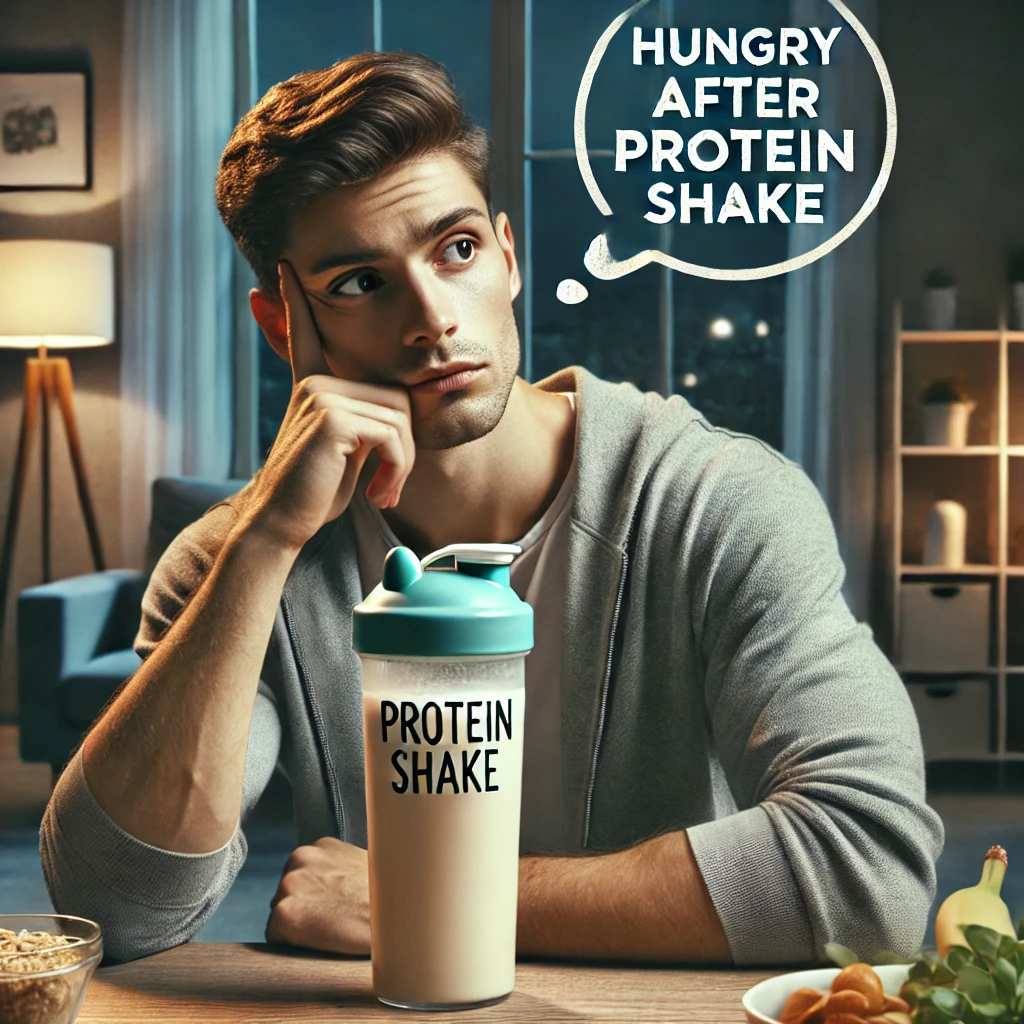Nutrition | Last Modified:
Why Am I Hungry After Eating Protein?

Protein is widely regarded as one of the most satiating macronutrients, often used to curb hunger and promote fullness. However, many individuals experience hunger shortly after consuming a high-protein meal or shake. This can seem counterintuitive, especially since protein has been proven to help with appetite control. So, why does this happen? Let’s explore the potential reasons behind feeling hungry after eating a protein shake.
Protein’s Role in Satiation
Protein plays a significant role in promoting fullness. When you consume protein, it stimulates the release of hormones like peptide YY and glucagon-like peptide-1 (GLP-1), which signal to your brain that you are full, and slows down the emptying of the stomach. This results in a sense of satiety for a longer period compared to carbohydrates or fats. However, this does not always guarantee lasting satiety for everyone.
The Importance of Nutrient Balance
One possible reason for hunger after a protein shake is an imbalance in the macronutrient composition. While protein is important, meals need to provide a balanced mix of fats, carbohydrates, and fiber in addition to protein. Protein shakes, especially those designed for muscle building or weight loss, can often be low in other nutrients, particularly carbohydrates and fats. Carbohydrates are important for providing quick energy and replenishing glycogen stores, while fats help slow down digestion, making you feel fuller for longer. If your shake lacks these components, your body may feel hungry despite the protein intake, as it is still craving the energy and nutrients that it needs to function properly.
Caloric Deficit and Hunger
Another potential factor is the total calorie intake from the shake. Protein shakes are often marketed as low-calorie meal replacements. While they may provide a high amount of protein, they can still be too low in calories to meet your body’s energy demands, especially if you are engaging in regular physical activity. This could lead to hunger shortly after consuming the shake, as your body is signaling that it needs more energy to maintain its functions.
The Role of Fiber
Fiber plays a crucial role in maintaining fullness, as it slows digestion and helps regulate blood sugar levels. Many protein shakes, particularly those that are highly processed or designed for muscle building, lack sufficient fiber. The absence of fiber can cause a quick spike in blood sugar followed by a rapid drop, which can trigger hunger. Incorporating fiber-rich foods like fruits, vegetables, or whole grains into your protein shake or consuming a fiber supplement alongside it could help address this issue.
Fast Digestion of Liquid Meals
Liquid meals, like protein shakes, are typically digested much faster than solid foods. While protein is slower to digest than carbohydrates, it is still absorbed more quickly when consumed in liquid form. This rapid digestion may explain why you feel hungry sooner after consuming a protein shake compared to a solid meal that contains the same amount of protein. When you eat solid foods, the process of breaking them down and absorbing their nutrients takes more time, which can help you feel full for longer periods.
The Thermic Effect of Protein
Protein has a higher thermic effect of food (TEF) compared to carbohydrates and fats, meaning that your body burns more calories digesting and processing protein. While this is beneficial for metabolism and weight management, it may also contribute to feelings of hunger. Since your body is working harder to process protein, you might end up burning more calories than you would from other macronutrients, which could lead to hunger if your protein intake isn’t matched with adequate energy from fats or carbohydrates.
Incomplete Meal Satisfaction
Satisfaction from a meal or snack is not just about physical fullness but also about sensory satisfaction. Many people find that drinking a protein shake does not provide the same psychological satisfaction as eating a full meal. The lack of chewing and the quick consumption of a liquid can leave you feeling unsatisfied, even if your stomach is technically full. This can result in a desire to eat more soon after, as your brain feels like you haven’t had a proper meal.
How to Avoid Hunger After a Protein Shake
To combat post-shake hunger, consider the following strategies:
-
Add Healthy Fats: Including a source of healthy fats like almond butter, flaxseeds, or avocado in your shake can slow digestion and help you feel full longer.
-
Include Fiber: Blend in high-fiber foods like oats, chia seeds, or spinach to your shake. This can help slow the absorption of sugars and keep hunger at bay.
-
Balance Macronutrients: Make sure your shake includes an appropriate balance of carbohydrates, fats, and protein. If your shake is primarily protein, add a piece of fruit or a small serving of whole grains on the side to increase your carbohydrate intake.
-
Opt for Solid Meals: If hunger after a shake becomes a recurring issue, try replacing some of your liquid meals with whole food options. Solid foods tend to take longer to digest, keeping you full longer.
Closing Remarks
Feeling hungry after a protein shake is a common experience for many people. This can be attributed to a variety of factors, including a lack of macronutrient balance, insufficient calorie intake, rapid digestion of liquid meals, or even psychological factors. By addressing these issues and adjusting your protein shake to include more balanced nutrients, you can reduce the likelihood of experiencing hunger after consuming it.
